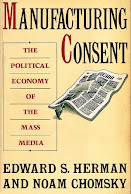"One of the best contemporary writers on philosophy" National Review
"A terrific writer" Damian Thompson, Daily Telegraph
"Feser... has the rare and enviable gift of making philosophical argument compulsively readable" Sir Anthony Kenny, Times Literary Supplement
Selected for the First Things list of the 50 Best Blogs of 2010 (November 19, 2010)
Thursday, March 31, 2022
Hart’s post-Christian pantheism
Sunday, March 27, 2022
Unjust war and false masculinity
Monday, March 21, 2022
Conspiracy theories, spontaneous order, and the hermeneutics of suspicion
Nobody denies that conspiracies occur. They happen every time two or more people collude in order to secure some malign end. When people criticize “conspiracy theories,” it is a particular kind of conspiracy that they find implausible. I’ve written several times before about some of the marks of conspiracy theories of this dubious kind. They tend to be grounded in “narrative thinking” rather than a rigorous and dispassionate consideration of the merits and deficiencies of all alternative possible explanations. They tend to violate Ockham’s razor, posit conspiracies that are too vast and complicated to be psychologically and sociologically feasible, and reflect naiveté about the way modern bureaucracies function. The vastness of the posited conspiracy often has implications for the reliability of news media and other sources of information that make the theory epistemically self-defeating and unfalsifiable. (For simplicity’s sake, from here on out I’ll use the expression “conspiracy theories” to refer, specifically, to theories having vices like these – acknowledging, again, that there are conspiracies of a more plausible kind, and thus conspiracy theories of a more plausible kind.)
Monday, March 14, 2022
Chomsky’s “propaganda model” of mass media
Friday, March 4, 2022
Just war theory and the Russo-Ukrainian war
At one and the same time:
- the damage inflicted by the
aggressor on the nation or community of nations must be lasting, grave, and
certain;
- all other means of putting an end
to it must have been shown to be impractical or ineffective;
- there must be serious prospects of
success;
- the use of arms must not produce
evils and disorders graver than the evil to be eliminated. The power of modern means of destruction
weighs very heavily in evaluating this condition.
End quote. I submit that Russia’s invasion clearly fails to meet the first, second, and fourth criteria, and NATO military action against Russia would clearly fail to meet the second, third, and fourth criteria.




